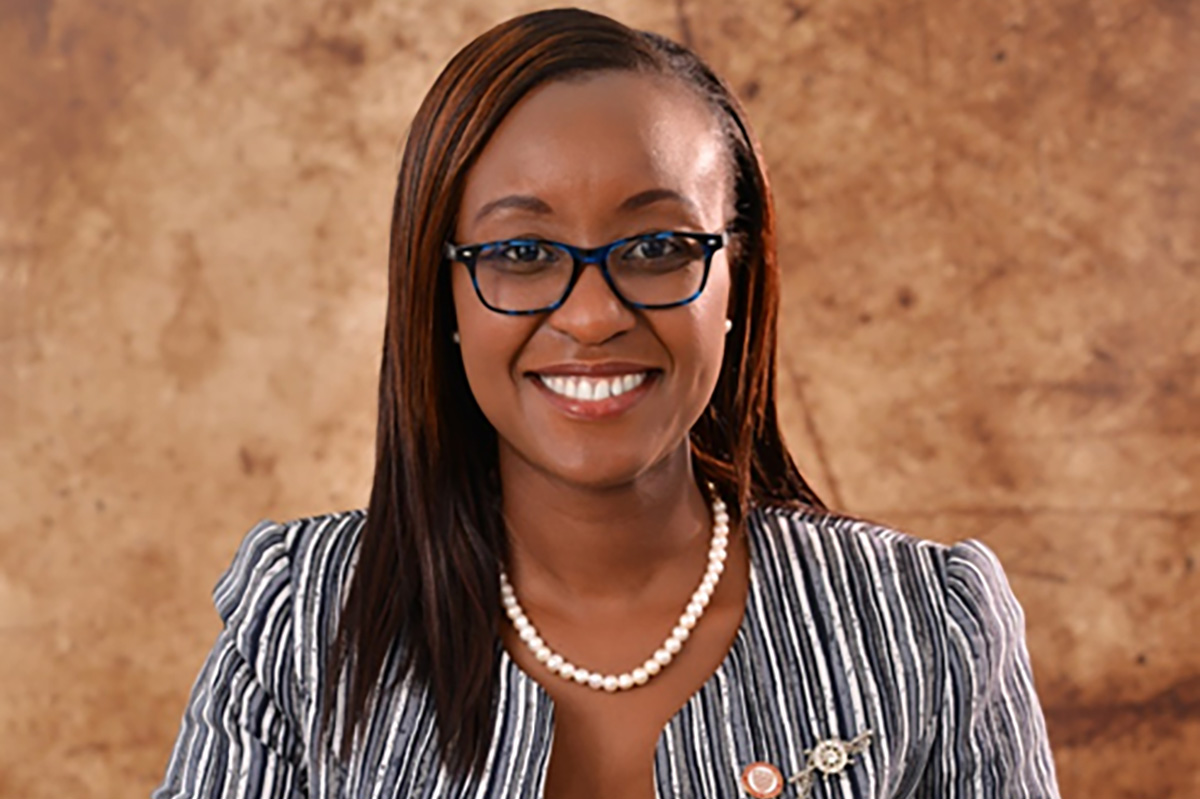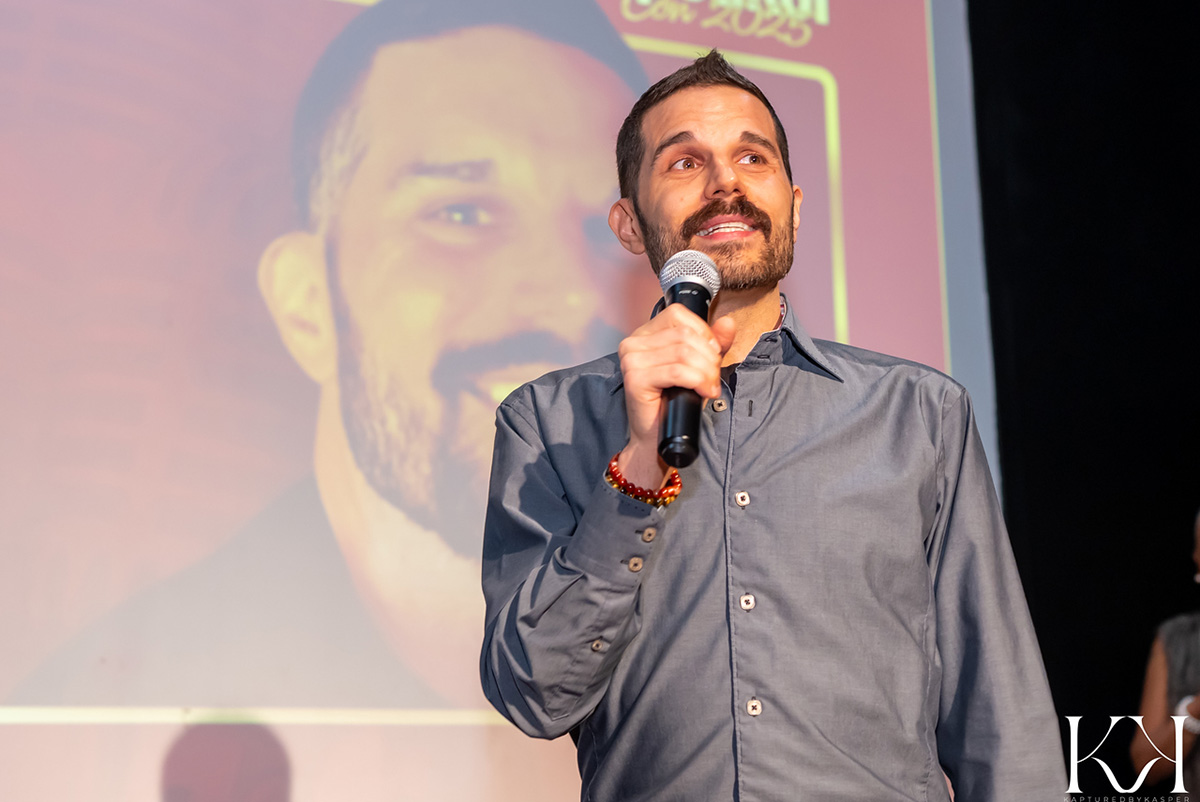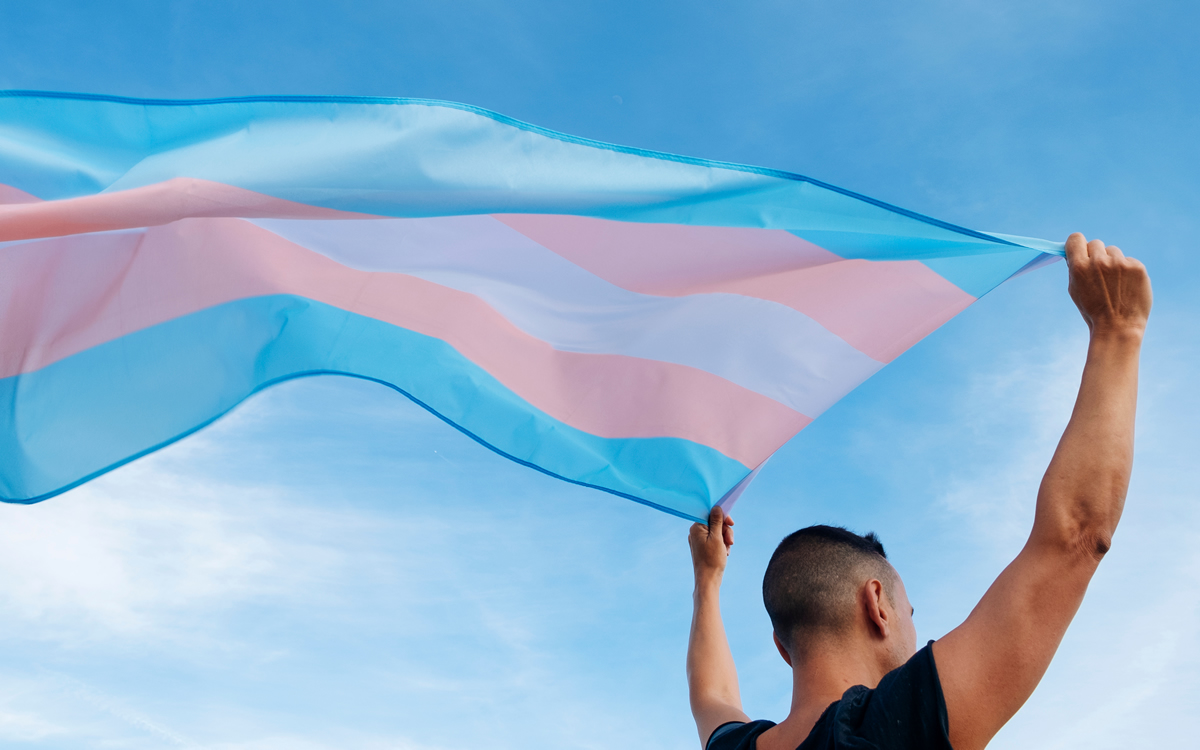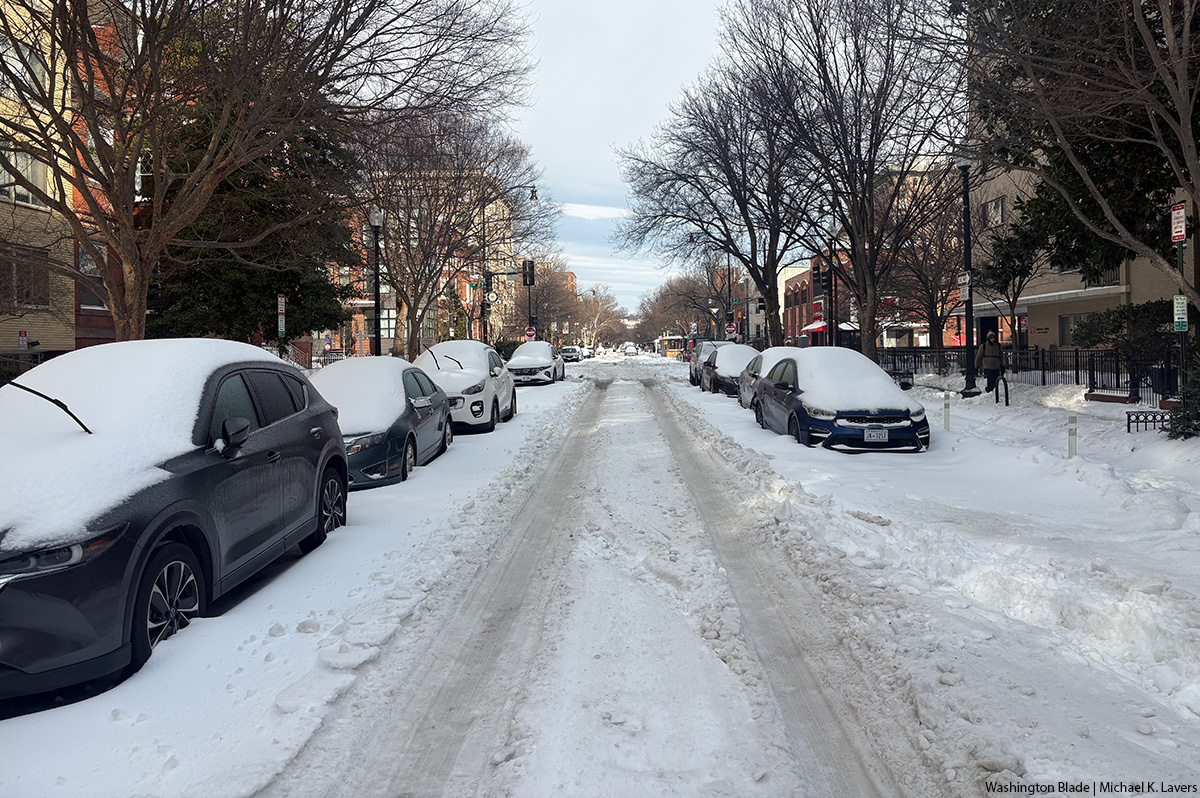Opinions
The power of queer community: When aid is cut, we don’t disappear. We organize
US funding withdrawal has had global impact

The global LGBTIQ+ movement is being systematically undermined, not just by eroding legal protections and escalating political harassment, but by the sudden withdrawal of vital funding. What began in the U.S. as a flurry of policy changes under Donald Trump has become a global flood of cuts, bans, and deliberate dehumanization. This week in Nairobi, prominent ultra-conservative campaigners from around the world, who are against abortion, transgender and LGBTIQ+ rights, and sexuality education, are speaking at the Pan-African Conference on Family Values.
Grassroots organizations, which are the backbone of queer survival and resistance around the world, are struggling to stay afloat. The global funding squeeze will and has already started to directly impact frontline organizations, forcing them to scale back, shut down programs, or close entirely.
In South Africa, support groups have slashed services due to the sudden disappearance of U.S. aid. In Mali, new laws criminalize LGBTIQ+ identities altogether. These regressions are not organic, they are engineered as American evangelicals continue to export anti-LGBTIQ+ ideologies across Africa.
In Europe, trans rights are being rolled back under the guise of biological essentialism, most recently validated by the U.K. Supreme Court’s ruling to exclude trans women from the legal definition of “woman.” In Hungary, LGBTIQ+ events have been constitutionally banned.
In the U.S., Trump is once again weaponizing his platform to push bans on gender-affirming care for minors and cut LGBTIQ+ research funding, all under the banner of “protecting children.” Elon Musk, once a corporate ally for LGBTIQ+ rights, now echoes far-right voices and launches transphobic tirades in tandem with personal attacks against his own daughter.
This is a coordinated, well-funded, and transnational anti-rights campaign to strip queer people of rights, dignity, and resources. At Hivos, we see this backlash as a call to deepen our commitment to centering queer voices, challenging harmful narratives with data and lived experiences, and working to strengthen the LGBTIQ+ movement globally.
We cannot fight this movement with performative IDAHOBIT posts on social media alone. We need action, international solidarity, and a recommitment to protecting queer lives.
What’s at stake?
This isn’t about identity politics. It’s about survival.
When the USAID funding freeze came into effect in early 2025, the Hivos-led EU SEE network conducted a survey on the impact of the freeze on civil society organizations around the world. Most surveyed organizations are reducing staff, scaling down programs, or reallocating budgets.
Outright International had to cut more than 120 grants to LGBTIQ+ organizations in 42 countries following U.S. aid freezes with devastating consequences: Lost access to trauma care for survivors of gender-based violence, the dismantling of HIV prevention networks, and increased discrimination, arrests, and violence. Outright International is only one of many organizations that have had to cut grants and funding.
Grassroots mutual aid groups in East Africa, working with minimal resources, have pioneered radical community models by providing housing, legal aid, and emergency support in the absence of government protection. These groups don’t just serve communities; they are the communities. Their defunding is not only cruel; it is a death sentence for countless individuals.
Economic justice and LGBTIQ+ liberation
Justice isn’t just legal, it’s economic. In most contemporary societies, justice is also closely tied to economic power. Around the world, LGBTIQ+ people face disproportionate levels of poverty, unemployment, housing insecurity, and workplace discrimination. Economic inclusion shouldn’t be an afterthought to queer rights around the world – it is foundational to their survival and dignity.
And yet, reports from Outright International, the Williams Institute, and the World Bank affirm that LGBTIQ+ economic inclusion benefits society as a whole. When the queer community is excluded, the human and financial costs are steep. The economic marginalization of LGBTIQ+ people lowers GDP, deepens inequality, and entrenches cycles of sexual and gender-based violence. So we also need systemic change that includes LGBTIQ+ people in broader economic opportunities — from education to employment and entrepreneurship opportunities.
There are strategies to bring LGBTIQ+ inclusion to the forefront. At Hivos, through the Free to be Me program, we have seen successes in LGBTIQ+ economic inclusion from the establishment of the Queer and Allied Chamber of Commerce of Africa to our partners in the Philippines successfully supporting the Lapu-Lapu city council’s Anti-Discrimination Ordinance. Positive developments like these are just one part of creating safer social, political, and legal environments allowing LGBTIQ+ people to have equal access to resources, opportunities, and decision-making.
What do we do now?
If governments won’t lead, then LGBTIQ+ communities and our allies must.
- Philanthropic foundations must step up. Some foundations have pledged to increase support, but the momentum pales in comparison to the urgency. Funding must be flexible, long-term, and led by community input.
- Media and influential individuals must confront hate speech head-on. Political leaders like Donald Trump aren’t “debating” gender identity — they’re inciting division and violence. Do not let bigotry define the narrative. Bigotry is not a “debate” its incitement
- Corporations must put money where their rainbows are. Pride-themed products without meaningful reinvestment into queer causes are nothing more than branding and pinkwashing. Corporations must ensure LGBTIQ+ employees are supported and protected.
- Solidarity demands more than words, donating directly to grassroots organizations and mutual aid funds. Speak up. Pressure local leaders. Boycott non-inclusive organizations and corporations. Demand change.
- Bring LGBTIQ+ voices into policymaking spaces. When the LGBTIQ+ community participates in the legislative process — and when advocates and organizations receive the funding they need to support long-term, transformative impact — the potential for positive change and inclusivity is endless.
Continuing the fight from previous generations
Queer communities have always faced adversity with grit, love, and radical imagination. But resilience is not infinite. Without funding, protection, and political will, resilience can end up in burnout.
Let’s do more than celebrate the queer community — let’s mobilize. We can take inspiration from the 2024 protests in Peru against a law classifying transgender people and other LGBTIQ+ people as mentally ill, which succeeded in getting the law scrapped within a month. The future of LGBTIQ+ rights will not be decided in courtrooms or campaign rallies alone. It will also depend on whether we show up right now, with our money, our voices, and our actions. Because when aid is cut, we don’t disappear. We organize.
Susan Githaiga is a Pan-African, feminist and human rights defender grounded in the belief that none of us are free until all of us are free as inspired by Lilla Watson and collective Black feminist thought. As the Global Program Manager of Free to Be Me Hivos, she leads a transformative initiative across 12 countries in Africa, MENA, and Southeast Asia, partnering with over 160 LGBTIQ+ CSOs and movements to advance human and economic rights and resilience. A strategist, bridge-builder and movement weaver, Susan thrives at the intersection of advocacy and grassroots power.


I was a “chubby” kid. A “husky” kid. Horrible terms that still make me cringe. Food issues stem through the family tree. I remember hearing a family member vomit when I was in elementary school; the residual scraps left floating in the toilet. I tried sticking my finger down my throat as a teen — an easy purge after a buffet binge. “Easy” being a sick way of looking at such a violent act to oneself, but the swiftness of an occasional act turning to addiction is frighteningly simple.
I was in my early 20s when I went on another diet in a series of crash diets, but this one hit different. I barely ate and worked out intensely each day. I decided to reward myself at the end of the week with a large pizza and breadsticks. Devouring a whole pizza (and more) was not new to me. I could down an alarming amount of food and hit the pillow in a haze. I didn’t know about nutrition, calories, or balance for many years to come. The meal went down the toilet, and I resumed my starvation diet. The calorie deficit pushed me closer to addiction’s ledge, and the hunger sent me over.
The sporadic binge turned to several a week — running to the local country store for a smattering of chips, candy, soda, honey buns, cookies, anything to fill me up. Soon, it was a regular appointment, arranging a home buffet to mindlessly stuff my body for hours ‘til I knelt over the ceramic bowl.
The binge-n-purge cycle turned twice daily. If I couldn’t binge at home in private, I would gorge at buffets or in my car — throwing up in restaurants, grocery stores, lobby restrooms. I lived in a house with a septic tank at the start of my illness. I clogged the tank, causing vomit to rise to the surface of the soil. Fearing further damage, I started throwing up in trash bags, collecting them in large bins, and driving them to public toilets to dispose of them. This went on for seven years, all through college, internships, and my first corporate job.
The older man I was with was losing himself at the same time, falling deeper into the abyss of severe depression he’d battled lifelong. We saw the best in each other at the start, and the worst by the demise. His bouts of darkness were beyond my repair, no matter how hard I tried to tackle the impossible fix. How is a 21-year-old supposed to convince a 46-year-old to seek treatment, talk him down from suicidal tendencies, get him to understand people love him? I couldn’t navigate it, and food seemed to be the one thing in my control.
It also became my reward and my excuse to treat myself in the face of any stress or accomplishment. He wants to kill himself: binge. I aced a test: binge. Work was rough: binge. Food was all I lived for. Friends, family, love all took a backseat. I was ruled by a hidden hunger I kept secret from nearly everyone, though my emaciated frame didn’t go unnoticed.
I was productive through the battle, working full time, graduating college summa cum laude, landing a solid job and moving up the ladder. All common addict attributes. Bulimia consumed me ‘til I was nearly 30 — four years after splitting from my first love, two years after he killed himself, and three years into a relationship with the man who would become my husband, and later my ex-husband.
They say the difference between privacy and secrecy is that privacy is about respect, whereas secrecy has shame attached. So, let’s drop the shame and the secrets held far too long. It’s been 12 years since I spent my days, nights, and thousands of dollars gorging and purging for hours. Twelve years since I was face down in a toilet at my own will.
I was a TV producer for a decade, booking more than 15,000 segments through the years. I often received pitches for February’s Eating Disorder Awareness Month and made a point to share these stories every year. Still, every pitch and every spokesperson I booked was with a woman. The stigma surrounding body dysmorphia in men continues despite men representing up to 25 percent of people with eating disorders, with members of the LGBTQ+ community at a higher risk, according to the National Association of Anorexia Nervosa and Associated Disorders. Men are also more likely to not recognize a problem, and their cases tend to be more severe by the time they see a doctor.
Living in secret and hiding is not living. It’s shame-based and the ultimate red flag that something needs to change. It will haunt you ‘til you are unrecognizable to yourself and everyone around you. You don’t need to share your story with the world, but opening up to someone is a crucial step in recovery and healing. Living in lies and maintaining deception is the heaviest of burdens
Addiction is blinding. You are unable to see the joys, the freedoms, and opportunities awaiting when you’re solely focused on soothing your addiction’s rage. Living for the fix pushes every other interest out of focus. When you start to release the devil on your back, you make room for wings to spread and space to fly into passions suffocated far too long.
It’s taken a lot of work, therapy, reflection and learning. Not to say I’m recovered, not to say I’m healed. I’ll forever have this devil on my back. It’s about learning to quiet his rage, soothe his anxiety, and ensure his safety and love. It’s a lifelong path of healing more with each day, each year.
And there is always hope. Even in the deepest depths of despair and isolation and ‘I’ll-never-get-better-ness.’ Whatever your circumstances, those tinges of hope are worth clinging to. They’ll carry you through.
I don’t know where I’ll be next year, let alone a future once so clear. And I’m okay. You’re okay. The other side isn’t perfect. Nothing is. But what a gift to make it there and experience life unshackled from your ghost.
There’s so much to see.
Kyle Ridley is an Emmy Award winning journalist with more than two decades in print and television.
Opinions
Why trans suffering is more palatable than trans ambition
We are most readily accepted when framed as victims

In the current media and political climate, stories of trans suffering move quickly. Stories of trans ambition do not.
A trans teenager denied healthcare. A trans woman attacked on public transit. A trans man struggling with homelessness. These narratives circulate widely, often accompanied by solemn op-eds, viral posts, and carefully worded statements of concern. The pain is real. The coverage is necessary. But there is a quieter pattern beneath it: trans people are most readily accepted when they are framed as victims—and most resisted when they present themselves as agents with desire, confidence, and upward momentum.
This distinction has sharpened in recent years. As anti-trans legislation has proliferated across statehouses and election cycles have turned trans lives into talking points, the public script has narrowed. Trans people are legible as objects of harm, but far less comfortable to many audiences as subjects of ambition. Survival is tolerated. Aspiration is destabilizing.
The reason suffering travels more easily is not mysterious. Pain reassures the audience. It positions trans people as recipients of concern rather than participants in competition. A suffering subject does not threaten status hierarchies; they confirm them. Sympathy can be extended without requiring a recalibration of power, space, or expectations. In this framing, acceptance remains conditional and charitable.
Ambition disrupts that arrangement. A trans person who wants more than safety—who wants money, authority, visibility, creative control, or institutional influence—forces a different reckoning. Ambition implies permanence. It implies entitlement. It implies that trans people are not passing through society’s margins but intend to occupy its center alongside everyone else.
You can see this discomfort play out in real time. When trans people speak about wanting success rather than safety, the response often shifts. Confidence is scrutinized. Assertiveness is reframed as arrogance. Desire is recoded as delusion. The language changes quickly: “unstable,” “narcissistic,” “out of touch,” “ungrateful.” In public discourse, confidence in trans people is frequently treated not as a strength, but as a warning sign.
Media narratives reinforce this dynamic. Even ostensibly positive coverage often relies on redemption arcs that center suffering first and ambition second—if at all. Success is framed as overcoming transness rather than inhabiting it. A trans person can be praised for resilience, but rarely for dominance, excellence, or command. Achievement must be softened, contextualized, and made reassuring.
This is especially visible in cultural reactions to trans people who refuse modesty. Trans figures who express sexual confidence, professional competitiveness, or political authority routinely face backlash that their cis counterparts do not. They are accused of being “too much,” of asking for too much space, of wanting too much too fast. The underlying anxiety is not about tone; it is about proximity. Ambition collapses the safe distance between observer and observed.
Politically, this preference for suffering over ambition is costly. Movements anchored primarily in pain narratives struggle to articulate futures beyond harm reduction. They mobilize sympathy but have difficulty sustaining leadership. A politics that can only argue from injury is perpetually reactive, always responding to the next threat rather than shaping the terrain itself.
This matters in a moment when trans rights are no longer debated only in cultural terms but in administrative, legal, and economic ones. Influence now depends on institutional literacy, long-term strategy, and the willingness to occupy decision-making spaces that were never designed with trans people in mind. Ambition is not a luxury; it is a prerequisite for durability.
Yet ambition remains suspect. Trans people are encouraged to be grateful rather than demanding, visible rather than powerful, resilient rather than authoritative. Even within progressive spaces, there is often an unspoken expectation that trans people justify their presence through pain rather than through competence or vision.
This is not liberation. It is containment.
A society that can tolerate trans suffering but recoils at trans ambition is not offering equality; it is managing discomfort. It is willing to mourn trans deaths but uneasy about trans dominance, trans leadership, or trans desire that does not ask permission. It prefers trans people as evidence of harm rather than as evidence of possibility.
None of this is an argument against documenting suffering. That work remains essential, particularly as legal protections erode and violence persists. But suffering cannot be the only admissible register of trans life. A politics that cannot imagine trans people as ambitious cannot sustain trans people as free.
Ambition does not negate vulnerability. Desire does not erase harm. Wanting more than survival is not ingratitude—it is the baseline condition of citizenship. The question is not whether trans people deserve ambition. The question is why it remains so unsettling when they claim it.
Until that discomfort is confronted, acceptance will remain conditional. Sympathy will remain cheap. And trans futures will continue to be negotiated on terms that stop just short of power.
Isaac Amend is a writer based in the D.C. area. He is a transgender man and was featured in National Geographic’s ‘Gender Revolution’ documentary. He serves on the board of the LGBT Democrats of Virginia. Contact him on Instagram at @isaacamend

First what isn’t. That would be snow removal in D.C. I understand the inches of sleet that fell on the nearly four inches of snow, and historic days of freezing weather, make it very difficult. But it took three days until they brought out the bigger equipment. Then businesses and homeowners were told they wouldn’t be fined for not clearing their sidewalks, which they have to do by law. That clearly made things worse. The elderly and disabled have an exemption from that, others shouldn’t be given one. Then there was no focus on crosswalks, so pedestrians couldn’t get around, and no apparent early coordination with the BIDS.
Then there are about 2,200 National Guard troops strolling D.C., yes strolling, at least before the snow. Why weren’t they given immediate snow removal duty. If the president gave a damn about our city he would have assigned them all to help dig out the city. We could have used their equipment, handed out shovels, and put the Guard to use immediately. Maybe the mayor put in her request for the Guard a little late.
I have met and chatted with many Guard members across the city. A group from Indiana regularly come to my coffee shop, though I haven’t seen them since the snow. I always thank them for their service — I just wish it wasn’t here. Nearly all agree with me, saying they would rather be home with their families, at jobs, or in school. I’ve met Guard members from D.C., West Virginia, Indiana, Mississippi, and Louisiana. My most poignant meeting was with one Guard member from West Virginia the day after his fellow Guard member was murdered. Incredibly sad, but avoidable; she should never have been assigned here to begin with. The government estimates it costs taxpayers $95,000 a year for each deployment. So, again, instead of strolling the streets, they should have been immediately assigned to assist with snow removal. Clearly the felon, his fascist aides, and incompetent Cabinet, are too busy supporting the killing of American citizens in Minneapolis, to care about this. I thank those Guard members now helping nearly a week after the snow began to fall. I recognize this was a difficult storm. I hope the city will learn from this for the future.
Now for something happening in D.C. that shouldn’t be. A host of retreads have announced they are candidates for office in both the June Democratic primary, and general election. Some are names you might remember but hoped were long gone. Two left the Council under ethical clouds. One is Jack Evans. He announced his candidacy for City Council president. I like Jack personally, having known him since he served on a Dupont ANC. This race is a massive waste of time and money, as he will surely lose. Even before his ethics issues were made public, and his leaving the Council under a cloud in 2020, he ran for mayor in 2014. At that time, he received only 5% of the vote, even in his own Ward. At 73, he should accept his electoral career is over. Another person who left the Council over questionable ethics, Vincent Orange, who is nearly 70, announced he is running for mayor. He did that last in 2014, when he got only 2% of the vote in the primary. He is another one who will surely lose. Both will likely qualify for city funding, wasting taxpayer money. I know I will be called an ageist. But reality is, in most cases, it’s time for a new generation to take the lead. Another person who has served before, was defeated for reelection, is now trying for a comeback on the Council. I think the outsized egos of these individuals should not be foisted on the voters. If they are really interested in serving the community, there are many ways to do it without holding elective office.
Then there is ICE and the continuing situation in Minneapolis. I applaud Democrats in Congress for holding up long-term funding for ICE for at least two weeks and getting the felon to negotiate. Now not every ICE agent behaves like the gestapo, but their bosses condone the behavior of the ones who do. Secretary of Homeland Security, Kristi Noem, who shot her dog, and Trump’s Goebbels, Stephen Miller, seem to think nothing of causing the deaths of American citizens.
Now the felon’s FBI and DOJ are arresting journalists; then going to Georgia and removing stored ballots from the 2020 election, all because the felon is still obsessed with that loss. His disappearing DNI, Tulsi Gabbard, was involved in that for some reason. The felon is a sick, demented, old man. They must all be stopped before they completely destroy our democracy.
Peter Rosenstein is a longtime LGBTQ rights and Democratic Party activist.
-

 a&e features4 days ago
a&e features4 days agoMarc Shaiman reflects on musical success stories
-

 Television4 days ago
Television4 days agoNetflix’s ‘The Boyfriend’ is more than a dating show
-

 Opinions4 days ago
Opinions4 days agoSnow, ice, and politics: what is (and isn’t) happening
-

 Movies4 days ago
Movies4 days ago50 years later, it’s still worth a return trip to ‘Grey Gardens’

















